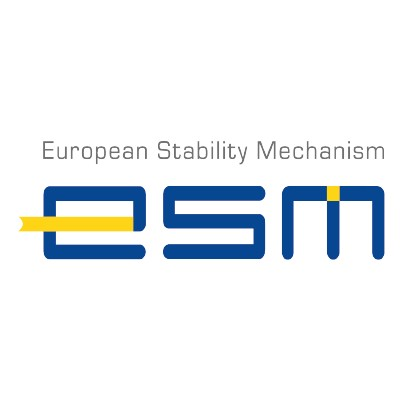The New Geopolitical Chessboard: France, Ukraine, and the Shadow of Trump
January 7, 2025, 3:56 pm

Location: Belgium, Brussels-Capital, Brussels
Employees: 1001-5000
Founded date: 1958

Location: United States, District of Columbia, Washington
Employees: 10001+
Founded date: 2000
In the ever-shifting landscape of global politics, recent statements from French President Emmanuel Macron and Ukrainian President Volodymyr Zelenskyy reveal a complex interplay of alliances, ambitions, and anxieties. As the world watches, the return of Donald Trump to the U.S. presidency looms large, promising to reshape the dynamics of international relations, particularly in Europe and Ukraine.
Macron's recent remarks highlight a dual approach: an acknowledgment of Trump as a "solid ally" while simultaneously critiquing the influence of tech moguls like Elon Musk. Macron's concerns are not merely about individual personalities but reflect a broader anxiety about the erosion of democratic values in the face of unchecked power. Musk's social media platform, X, has become a battleground for ideas, and Macron warns that this new "reactionary international" movement threatens the very fabric of European democracy. The specter of tech billionaires meddling in elections raises alarms, echoing fears of a future where democracy is held hostage by corporate interests.
Yet, Macron's gaze is not solely fixed on the tech landscape. He is acutely aware of the ongoing war in Ukraine, a conflict that has dragged on for nearly three years. His call for "realistic discussions on territorial questions" underscores the need for Ukraine to take the lead in negotiations. Macron's insistence that the U.S. must play a role in convincing Russia to engage in dialogue reflects a delicate balancing act. He recognizes that the credibility of the West hangs in the balance. A quick resolution, driven by fatigue, could lead to catastrophic consequences, not just for Ukraine but for the U.S. itself.
Zelenskyy, on the other hand, is looking to the future with a mix of hope and trepidation. His recent statements emphasize that any security guarantees for Ukraine must come from the United States. The prospect of Trump returning to the White House has sparked optimism in Kyiv, but it also raises fears of a hasty peace that could come at a steep price. Zelenskyy’s assertion that without U.S. involvement, security guarantees are meaningless speaks volumes about Ukraine's reliance on American support. The specter of Russian aggression looms large, and Zelenskyy is acutely aware that a ceasefire without solid guarantees would merely provide Russia with the time it needs to regroup.
The interplay between Macron and Zelenskyy reveals a broader narrative about European unity and the need for a cohesive strategy in the face of external threats. Macron's call for Europe to bolster its defense capabilities is a clarion call for independence. He warns that reliance on American defense technology could lead to strategic dilemmas that are both cruel and culpable. This sentiment resonates deeply in a Europe still grappling with the implications of the Ukraine conflict.
As the U.S. prepares for a new administration, the stakes are high. Zelenskyy’s hope for a meeting with Trump reflects a desire for a renewed commitment to Ukraine's sovereignty. The Ukrainian president's emphasis on a "peace through strength" approach aligns with Macron's insistence on the need for a robust European response to security challenges. Both leaders understand that the future of Ukraine—and by extension, European stability—hinges on a delicate balance of power.
The backdrop of the Middle East adds another layer of complexity. Macron identifies Iran as a principal strategic challenge, warning that the world is "perilously close to the breaking point." This assertion highlights the interconnectedness of global conflicts. The fight against terrorism remains a central priority, and Macron's commitment to supporting allies like the Kurds underscores France's role as a stabilizing force in a tumultuous region.
The EU-Mercosur trade deal further complicates the European landscape. Macron's opposition to the agreement signals a commitment to environmental and agricultural integrity, even as he navigates the complexities of international trade. His insistence on coherent commitments reflects a desire for Europe to assert its values on the global stage.
In this geopolitical chess game, the pieces are in constant motion. Macron's balancing act between collaboration with the U.S. and the need for European sovereignty is a tightrope walk. Zelenskyy's reliance on American support juxtaposes the need for Ukraine to assert its agency in negotiations. The looming presence of Trump adds an unpredictable element, as his approach to foreign policy could either bolster or undermine European stability.
As the world watches, the interplay between these leaders will shape the future of Europe and Ukraine. The stakes are high, and the consequences of missteps could reverberate far beyond their borders. In this new era of geopolitical uncertainty, the need for unity, resilience, and strategic foresight has never been more critical. The future is a blank canvas, and the choices made today will paint the picture of tomorrow.
Macron's recent remarks highlight a dual approach: an acknowledgment of Trump as a "solid ally" while simultaneously critiquing the influence of tech moguls like Elon Musk. Macron's concerns are not merely about individual personalities but reflect a broader anxiety about the erosion of democratic values in the face of unchecked power. Musk's social media platform, X, has become a battleground for ideas, and Macron warns that this new "reactionary international" movement threatens the very fabric of European democracy. The specter of tech billionaires meddling in elections raises alarms, echoing fears of a future where democracy is held hostage by corporate interests.
Yet, Macron's gaze is not solely fixed on the tech landscape. He is acutely aware of the ongoing war in Ukraine, a conflict that has dragged on for nearly three years. His call for "realistic discussions on territorial questions" underscores the need for Ukraine to take the lead in negotiations. Macron's insistence that the U.S. must play a role in convincing Russia to engage in dialogue reflects a delicate balancing act. He recognizes that the credibility of the West hangs in the balance. A quick resolution, driven by fatigue, could lead to catastrophic consequences, not just for Ukraine but for the U.S. itself.
Zelenskyy, on the other hand, is looking to the future with a mix of hope and trepidation. His recent statements emphasize that any security guarantees for Ukraine must come from the United States. The prospect of Trump returning to the White House has sparked optimism in Kyiv, but it also raises fears of a hasty peace that could come at a steep price. Zelenskyy’s assertion that without U.S. involvement, security guarantees are meaningless speaks volumes about Ukraine's reliance on American support. The specter of Russian aggression looms large, and Zelenskyy is acutely aware that a ceasefire without solid guarantees would merely provide Russia with the time it needs to regroup.
The interplay between Macron and Zelenskyy reveals a broader narrative about European unity and the need for a cohesive strategy in the face of external threats. Macron's call for Europe to bolster its defense capabilities is a clarion call for independence. He warns that reliance on American defense technology could lead to strategic dilemmas that are both cruel and culpable. This sentiment resonates deeply in a Europe still grappling with the implications of the Ukraine conflict.
As the U.S. prepares for a new administration, the stakes are high. Zelenskyy’s hope for a meeting with Trump reflects a desire for a renewed commitment to Ukraine's sovereignty. The Ukrainian president's emphasis on a "peace through strength" approach aligns with Macron's insistence on the need for a robust European response to security challenges. Both leaders understand that the future of Ukraine—and by extension, European stability—hinges on a delicate balance of power.
The backdrop of the Middle East adds another layer of complexity. Macron identifies Iran as a principal strategic challenge, warning that the world is "perilously close to the breaking point." This assertion highlights the interconnectedness of global conflicts. The fight against terrorism remains a central priority, and Macron's commitment to supporting allies like the Kurds underscores France's role as a stabilizing force in a tumultuous region.
The EU-Mercosur trade deal further complicates the European landscape. Macron's opposition to the agreement signals a commitment to environmental and agricultural integrity, even as he navigates the complexities of international trade. His insistence on coherent commitments reflects a desire for Europe to assert its values on the global stage.
In this geopolitical chess game, the pieces are in constant motion. Macron's balancing act between collaboration with the U.S. and the need for European sovereignty is a tightrope walk. Zelenskyy's reliance on American support juxtaposes the need for Ukraine to assert its agency in negotiations. The looming presence of Trump adds an unpredictable element, as his approach to foreign policy could either bolster or undermine European stability.
As the world watches, the interplay between these leaders will shape the future of Europe and Ukraine. The stakes are high, and the consequences of missteps could reverberate far beyond their borders. In this new era of geopolitical uncertainty, the need for unity, resilience, and strategic foresight has never been more critical. The future is a blank canvas, and the choices made today will paint the picture of tomorrow.